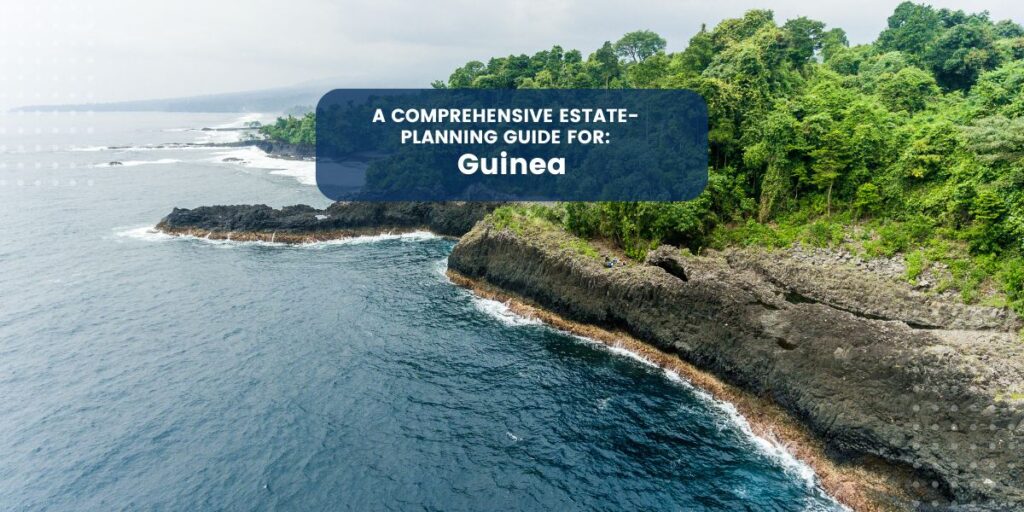Estate Planning in Guinea: A Comprehensive Guide
Introduction
Guinea, known for its rich cultural diversity, lush rainforests, and mineral wealth, is a country full of natural beauty and vibrant traditions. From the scenic Fouta Djallon highlands to the beautiful coastlines, there is much to explore and appreciate about Guinea. However, just as it is important to enjoy the beauty and culture of the country, it is equally essential to secure your future through proper estate planning.
Estate planning is a crucial element of ensuring that your loved ones are protected, and your assets are distributed according to your wishes. Though Wills.com does not provide estate planning services in Guinea, we do offer a secure and automated distribution system that makes estate management easier for individuals all around the world.
Overview of Estate Planning in Guinea
Estate planning in Guinea involves organizing your affairs in such a way that your assets are efficiently and legally transferred to your beneficiaries after your passing. Like many countries, Guinea follows specific inheritance laws, which dictate how assets are distributed among heirs. In Guinea, inheritance is largely governed by customary law, but individuals can also create a will to specify how they wish their assets to be divided.
Inheritance Laws
Inheritance in Guinea can vary depending on the region and family traditions, as customary laws often play a significant role. However, the Guinean Civil Code also allows individuals to draft a will to override customary practices and designate their beneficiaries. Spouses, children, and close relatives are typically entitled to a portion of the estate if a person dies without a will.
Standard Estate Planning Documents
- Will (“Testament”): Specifies how an individual wants their assets to be distributed.
- Power of Attorney (POA): Appoints a trusted person to manage one’s affairs in case of incapacitation.
- Trusts: Used to manage assets on behalf of beneficiaries.
- Advance Care Directive: A document specifying one’s preferences for medical care if unable to make decisions personally.
Creating a Will or Equivalent Estate Plan in Guinea
To create a valid will in Guinea, the following are generally required:
Required Documentation
- Identification Documents: Passport or National ID.
- List of Assets: A detailed list of assets such as property, bank accounts, investments, and personal belongings.
- Beneficiary Information: Full names and contact details of beneficiaries.
Legal Requirements
- The will must be in written form and signed by the testator (the person creating the will).
- At least two witnesses must be present when signing the will.
- The will may need notarization to ensure it is legally enforceable.
Frequently Asked Questions (FAQs)
- Is it necessary to have a will in Guinea? It is not legally mandatory, but having a will ensures your assets are distributed according to your wishes.
- Who inherits if I die without a will in Guinea? Customary laws and civil laws will determine how assets are distributed, usually prioritizing spouses and children.
- Can I distribute my assets outside of customary practices? Yes, by drafting a will, you can specify how you wish your assets to be distributed.
- What documents do I need for estate planning in Guinea? Common documents include a will, power of attorney, and advance care directives.
- How do I store my will securely? You can use the Wills App to store your will digitally and ensure it is accessible when needed.
- What are the inheritance taxes in Guinea? Inheritance taxes vary based on the value of assets and the beneficiary’s relationship to the deceased.
- What happens if I don’t appoint an executor? If no executor is appointed, the court may designate someone to manage the estate.
- How does probate work in Guinea? The probate process involves authenticating the will and distributing assets, which may require court involvement.
- Can I include my pets in my estate plan? Yes, you can designate a caregiver and allocate funds for your pets’ care.
- What is an ethical will? An ethical will passes on values, beliefs, and personal experiences to loved ones, preserving your legacy beyond material assets.
Disclaimer
Have more questions? Explore additional topics in our Learning Center or connect with our customer support team through our Contact page. Wills.com provides easy-to-use legal forms and resources for estate planning. Please note that we are not a law firm and do not offer legal advice, and that the details of this article may be outdated as laws, customs, and regulations change from time to time.



